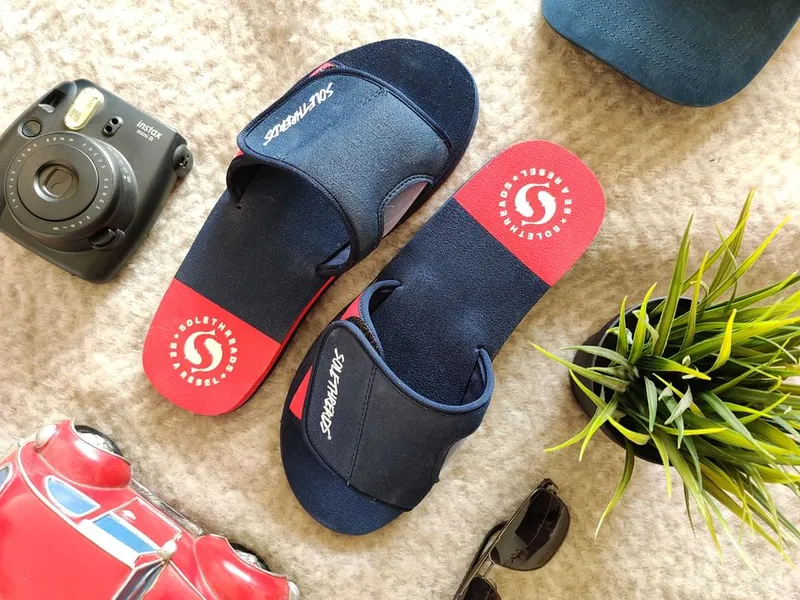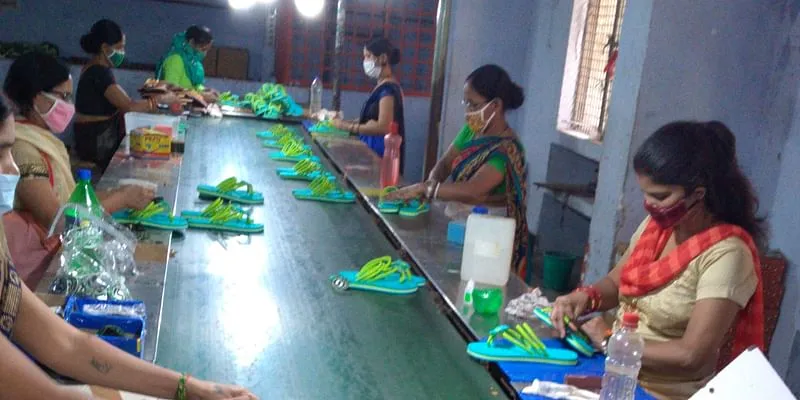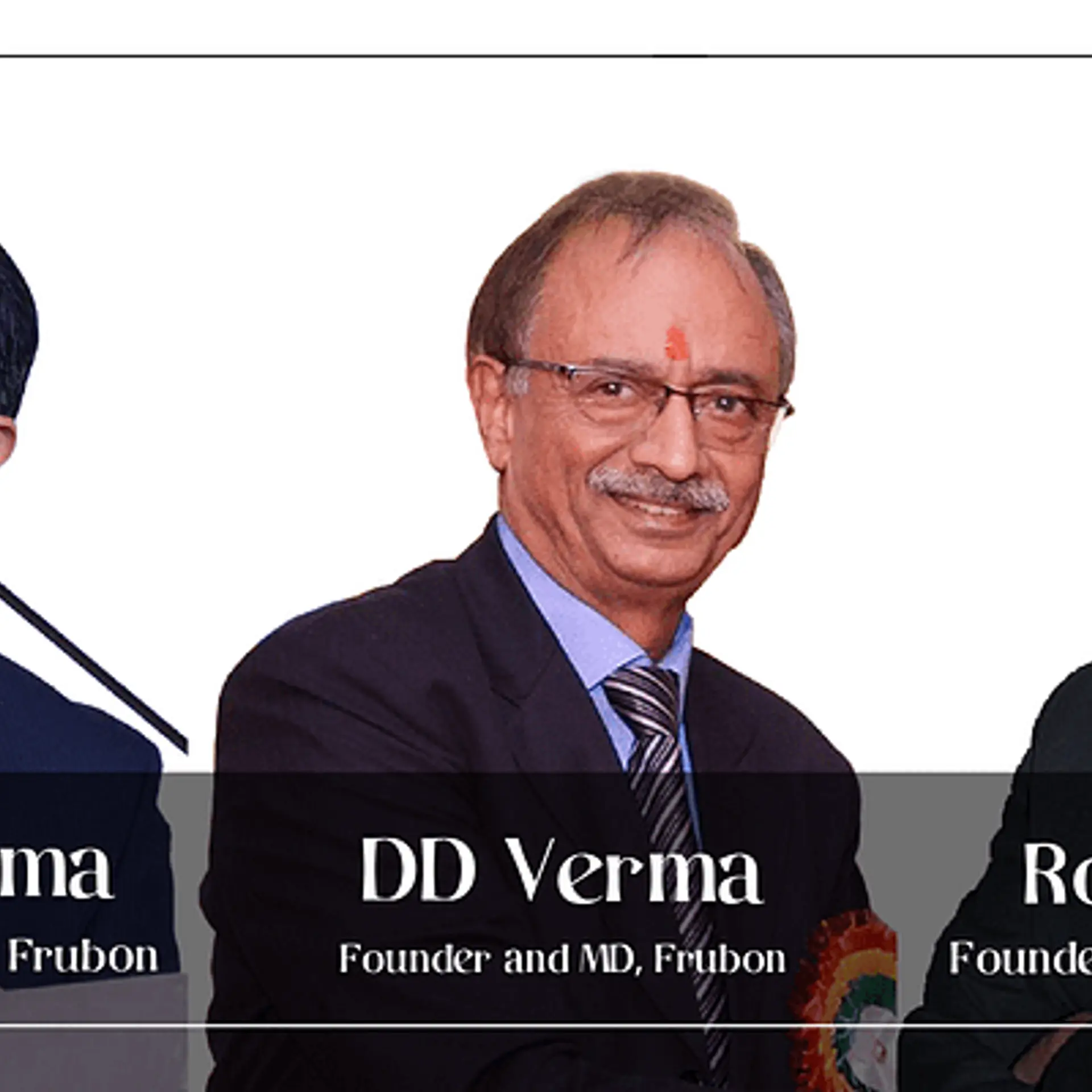This ‘Made in India’ D2C footwear brand crossed Rs 1 Cr monthly revenue in just 7 months by selling flip flops online
Started in November 2018, Solethreads is a Delhi-based D2C footwear brand that is disrupting the open footwear category for flip flops. It crossed Rs 50 lakh GMV on Amazon in four months after launching on the ecommerce platform.
For over a decade, Delhi-based Gaurav Chopra worked closely with footwear brands Bata, Hush Puppies, Puma, and Benetton. Working with these brands made him feel they were unwilling to invest the time and resources necessary to reinvent and own the open footwear category of flip flops.
This was despite flip flops being popular in India and an opportunity to capture the organised market for such open footwear. Alongside consumer brand experts Sumant Kakaria, Vikram Iyer, and Aprajit Kathuria, Gaurav started in November 2018 to meet the demand for branded flip flops.
Solethreads is a youth-centric D2C footwear brand which is aimed at disrupting the open footwear category. It focusses on creating innovative and quirky designs for its flip flops.
“Globally, there are brands that are specialists in the flip flops category, such as Reef, Havainas, and Sanuk. But in India, we saw there was no ‘flip-flops only’ brand. Crocs, UCB, Puma, Nike, Adidas, Skechers, etc., sold flip flops as part of their portfolio but we wanted to create a brand that became the go-to-choice for flip flops only,” Sumant Kakaria tells SMBStory.
The bootstrapped brand launched on major ecommerce platforms in December 2019, and claims to have seen tremendous response and consumer connect.
Sumant says Solethreads crossed Rs 50 lakh GMV on Amazon in just four months after launching, and was recognised by the ecommerce platform as an emerging brand. “Overall, we reached Rs 1 crore revenue in seven months of launch,” Sumant says, adding:
“We are a fully ‘Made in India’ brand with zero dependence on China or any other country for imports or any components.”

Solethreads' Freeway flip flops
The D2C business model
Solethreads manufactures its products in Delhi and Rajasthan at units operated by partner firms, some of whom work exclusively with Solethreads. This allows the company to directly employ a lean workforce of 15 people as well as support over 200 skilled and semi-skilled workers at the partners’ factories.
Alongside the brand’s in-house R&D team, Solethreads’ workforce designs and makes flip flops using a speedy, D2C approach.
“We are a fast fashion brand and speed is of the essence. We launch new products every month and phase out the old ones,” Sumant says.
Solethreads keeps at least 80 to 100 styles in its core catalogue, with another 100 in rotation. These are phased in and out based on trend spotting. On its website, it keeps a massive repository of 400 to 500 styles, including made to order designs.
With this large inventory of SKUs, the primary challenge faced by Solethreads was efficiently managing its inventory while scaling the brand. To address this, the founders decided to partner with supply chain management firm Glaucus for smart warehousing and with software company Vinculum for omni-channel inventory management.
Solethreads has partnered with ecommerce platforms such as Amazon, Flipkart, and Myntra and also began selling on its own website.
Believing there is exponential growth to be tapped into across online and offline mediums, Solethreads went omnichannel by launching its products in leading footwear retailer Metro Shoes. It is now gearing up to expand across Metro Shoes stores.
“With this ‘speed-to-market’ D2C model, we are now able to make a healthy 30 percent to 35 percent gross profit, which we plan to take to over 40 percent. Our revenue is already growing at 40 percent month-on-month, with a monthly GMV run rate of Rs 2 crore,” Sumant says.

Inside a Solethreads facility
Market positioning and outlook
The footwear sector in India is fragmented and close to 75 percent production comes from the unorganised sector. The organised segment for shoes is dominated by the likes of Nike, Adidas, Puma, while the organised flip flops category is dominated by Relaxo and Paragon.
“Flip flops is the most penetrated and highest selling sub-category within footwear. There is so much white space there that we want to focus on making a mark in this category before getting into any allied categories,” Sumant says.
The brand has phylon-moulded technology (for ultra-light and shock absorbent products), squishy technology (for soft and comfortable products) and a patented synturf technology (grass flip flops).
“We also have rubberised skid-resistant soles, recycled PVC straps, and hand-printed graphic designs. Overall, we have more than 30 design patents. We also have some new-age innovation in our pipeline, such as DIY designs and personalised footwear,” he adds.

Solethreads Founder and CEO Sumant Kakaria
COVID-19 impact and future plans
Solethreads was growing in early 2020 and made plans to scale up before the COVID-19 pandemic and lockdown hit. The pandemic led to a break in sales and limited offline business. But when the lockdown was lifted, the business saw a surge in the number of orders.
“Prior to lockdown, we were selling around 15,000 pairs a month. Post-lockdown, this number almost tripled to 40,000 pairs a month. We saw a lot of new customers acquired through digital and online mediums,” he says, adding:
“We see around 15 percent repeat customers and this will increase over a longer period as the average repeat cycle for open footwear is six to nine months.”
Solethreads is eyeing Rs 30 crore in annual revenue run rate by the end of this year. It is also planning to raise funds and ramp up its customer acquisition and brand building efforts.
“In the next three years, we want to become a Rs 300 crore fast fashion brand in the open footwear category. We are also bullish on going global with the brand basis some recent pilot tests we have been doing on international platforms,” Sumant says.
Edited by Megha Reddy










